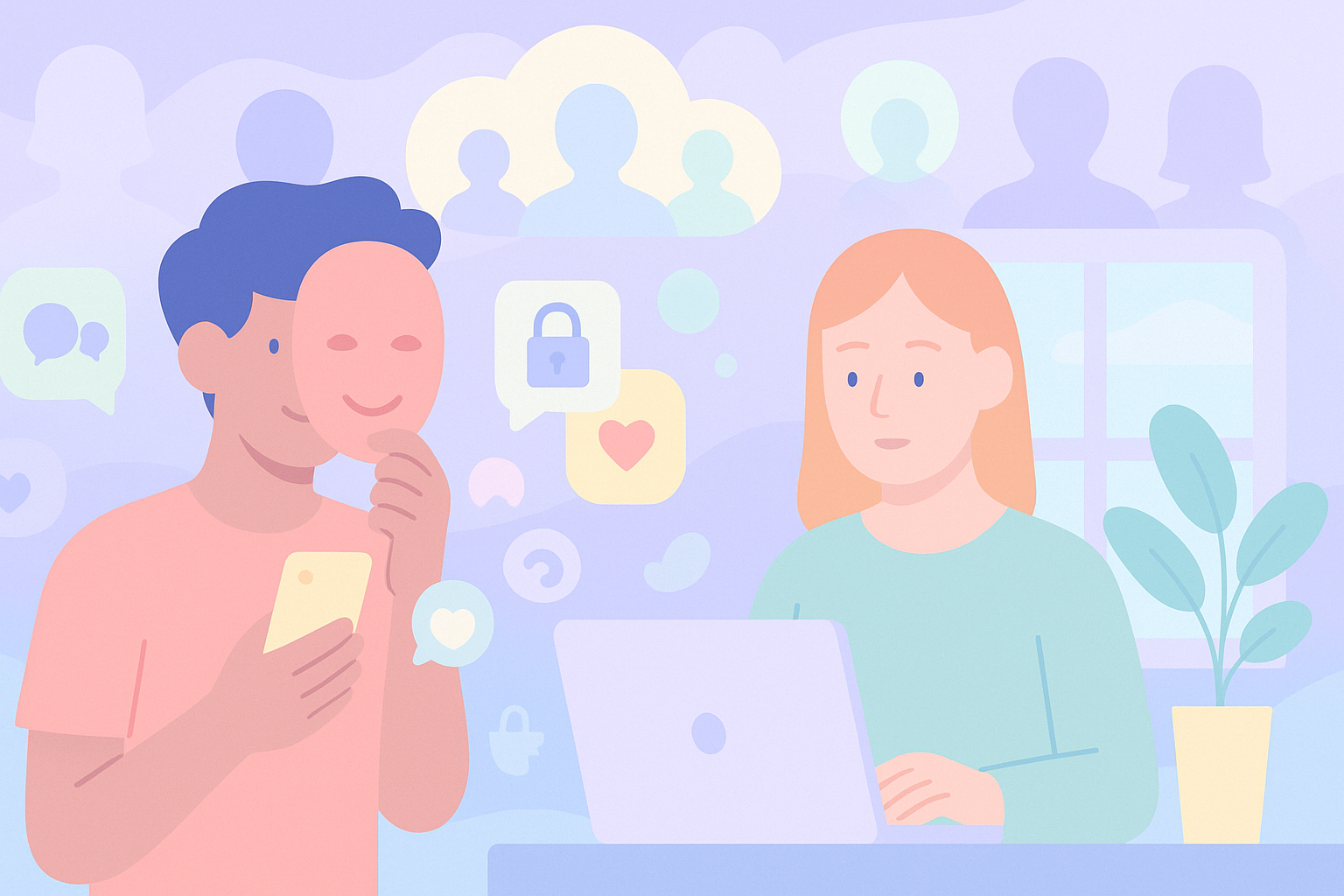Behind the Mask: Exploring Why Anonymous Social Networks Captivate U.S. College Students

The Essence of Anonymity
At its core, anonymity offers freedom — a precious commodity in an era of hyper-connectivity and digital permanence. Traditional social networks encourage meticulous curation of public images, fostering a stressful environment where students constantly feel evaluated and judged.
Anonymous platforms, in contrast, allow students to shed their digital masks, enabling honest and raw communication without fear of lasting repercussions.
Students use these platforms to discuss sensitive topics like mental health struggles, academic pressures, relationship issues, and even existential anxieties — subjects often too intimate or stigmatized to approach openly.
In the safe harbor of anonymity, vulnerability becomes strength rather than weakness, fostering deeper connections based on shared experiences rather than superficial popularity.
Why Students Crave Anonymity
- Authenticity and Vulnerability: In anonymous spaces, authenticity thrives. Students, weary from maintaining polished online personas, find relief in expressing their genuine thoughts and feelings without judgment. This authenticity strengthens community bonds, as peers find resonance and validation in each other's honest experiences.
- Escapism and Stress Relief: Campus life is filled with pressures — academic expectations, social dynamics, financial strain, and career uncertainty. Anonymous forums offer a valuable escape, serving as digital diaries where students vent frustrations, seek advice, or simply lighten their emotional burdens.
- Curiosity and Belonging: Anonymity also feeds curiosity, allowing students to glimpse unfiltered realities of campus life. By engaging with uncensored discussions, students feel a stronger connection to their community, even if the voices remain faceless.
Navigating the Dark Side of Anonymity
Despite these benefits, anonymity is not without its shadows. The same veil that encourages open dialogue also facilitates negative behaviors such as cyberbullying, harassment, and misinformation.
Freed from social accountability, a minority of users exploit anonymity to spread rumors, attack peers, or propagate hateful content. Such toxic behaviors can quickly poison the communal well, turning supportive networks into hostile environments.
Furthermore, anonymity can inadvertently promote isolation, as students rely heavily on digital spaces instead of developing offline social skills. The absence of real-world consequences might lead some users toward harmful extremes, including radicalization or self-destructive behaviors.
Addressing these challenges requires careful moderation, community-driven guidelines, and proactive mental health resources integrated directly into anonymous platforms. A balanced approach — promoting accountability without compromising privacy — remains crucial.
Life After Graduation: Where Does Anonymity Fit?
As graduation approaches, students inevitably face an identity crisis concerning their digital habits. Campus-centric anonymous networks lose relevance post-graduation, leaving students uncertain about their future online presence.
The professional world emphasizes polished personal branding, leaving little space for anonymity. Graduates often struggle to find platforms that offer comparable freedom of expression without jeopardizing their career prospects.
Yet, the desire for authentic, confidential interaction doesn't vanish upon receiving a diploma. Alumni frequently seek new digital spaces that preserve anonymity or migrate toward niche, semi-anonymous communities, demonstrating an enduring human need for candid connection beyond university walls.
The Future of Anonymity: Evolving to Meet New Needs
Looking ahead, anonymous social networks are poised for thoughtful evolution. Future platforms might blend anonymity with layers of responsibility, leveraging advanced technologies such as AI-driven moderation and robust reporting mechanisms to mitigate abuse.
Additionally, tailored mental health and community support features could transform anonymous apps into proactive wellness resources, ensuring a healthier, safer online experience.
At YourSecret, our team is dedicated to creating such an anonymous social platform. We believe in learning from the shortcomings of previous platforms to establish a secure, supportive space for genuine dialogue.
Through thoughtful moderation, clear community guidelines, and integrated mental health support, we aim to build an anonymous social app that empowers students — and eventually graduates — to express themselves openly and safely.
Beyond Campus: Anonymity for the Professional World
An innovative possibility includes anonymous professional networks, providing adults a protected environment to discuss sensitive workplace issues, career anxieties, and mental health openly.
Such platforms could offer essential support, fostering authentic dialogue in a world increasingly scrutinized by digital surveillance and judgment.
Ultimately, the enduring popularity of anonymous social networks reveals a profound, ongoing human desire for genuine connection and expression, free from societal pressures.
To harness this potential responsibly, future platforms must prioritize ethical design, robust safety measures, and empathetic community management. As we move forward, the digital anonymity of tomorrow could be redefined — not as a refuge from reality but as a constructive space that enriches our online and offline lives alike.
*Written by the YourSecret Editorial Team